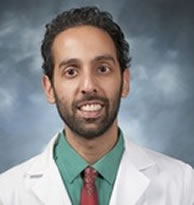We are in the midst of a global pandemic the likes of which we have never before seen in our lifetime. Every day a new record high number of cases and number of deaths is reached. While the number affected physically, emotionally, and economically spirals out of control, here is something that will serve as a gut check: these will be remembered as the good old days.
As a nation, everything we have done to this point has been reactive as opposed to proactive. The curves showed that we were behind the scourge afflicting Italy by approximately two weeks. Italy sent preternatural messages from the future of what we would soon be facing. Inexplicably, the United States was stupefied and unprepared, with images of nurses wearing trash bags for protection and bodies piling up inside of morgue trucks. At a time when we should have been galvanized into preventing unnecessary suffering, we were caught unawares.
While our elected officials gave false hope that the country would be operational by Easter, the reality is that Easter was just another holiday whose celebration was diminished in light of the pandemic. Most firework celebrations were cancelled for Independence Day. Halloween has no chance this year, and Thanksgiving and Christmas celebrations will come down to how much risk people are willing to take with travel and relatives. It is essential that we stop taking a short-term approach to this problem and embrace what is unavoidable: winter is coming.
It’s a well-known fact that emergency room volumes spike in the winter season. It’s a time of year typically reserved for Influenza, and staffing is increased to account for the surge in the number of patients that seek help. What’s going to happen when patients develop fever and are unsure if they have Influenza, COVID-19, or one of the other plethora of illnesses that might be responsible? They will turn to the Emergency Department for answers. Throughput will only worsen as patients wait even longer for results and more employees will be quarantined home from work while awaiting results in a half-baked attempt to avoid exposure. In the meantime, we argue over masks.
Benjamin Franklin is credited with quoting, “In this world nothing can be said to be certain, except death and taxes.” I’d like to update that quote for 2020: “Nothing can be said to be certain, except death, taxes, and news of a vaccine for COVID-19 by November 3rd”. There is no way to speak about the pandemic and our nation’s impotent response to it without speaking about politics. Trying to segregate the two ideas is like discussing the Kansas City Chiefs without mentioning Patrick Mahomes: the two ideas are inextricable. The discovery and research phase for a vaccine is typically two to five years. This particular situation has been met with unprecedented fervor: there are over 100 vaccines currently being developed and with SARS coronavirus in the rearview mirror, we aren’t starting from scratch. In other words, it is perfectly reasonable to expect that two year timeframe to be much less. However, in recent days we have seen the White House wrestle control from the CDC and relegate its all-star infectious disease specialist, Dr. Anthony Fauci, to the bench. In other words, science has taken a backseat to politics. This is, literally, how you write history. The next president will be chosen by public sentiment towards our nation’s response to COVID-19. A sense of desperation coupled with potential financial windfall is unlikely to be compatible with quality. Early reports touting successful trials have largely ignored adverse effects. If a vaccine is developed too soon without adequate scientific support, people have every right to be reticent of its effectiveness.
Warm weather and summer months were supposed to be the downfall of COVID-19. Instead, the hottest states in America have become its new epicenters. We missed our chance to flatten the curve. We ran out of personal protective equipment while facing the first surge. We are squandering our opportunity now by arguing over masks. Winter is coming — it’s time to stop reacting to these challenges and become proactive if we are to thrive.
Dr. Sajid Khan, MD, is a board-certified Emergency Medicine physician with over 10 years of experience working in a variety of settings from inner-city level 1 trauma centers serving 100,000 patients per year to 3-bed rural Eds. A published author, Dr. Khan has written a number of books including, The Ultimate Emergency Medicine Guide, a comprehensive review book that is the highest-rated and most up-to-date text for Emergency Medicine physicians preparing to certify.
©Copyright - All Rights Reserved
DO NOT REPRODUCE WITHOUT WRITTEN PERMISSION BY AUTHOR.









